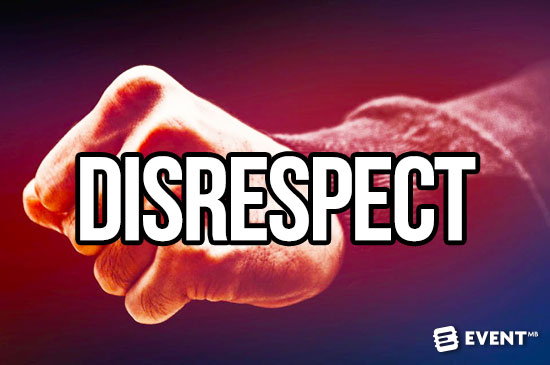Skift Take
Ahhh, the drama. If your workplace is seeming more like a soap opera and less like a place of business, there are a few things you can do to end the disrespect you may be feeling as an event planner.
Many people think event planners have incredibly glamorous jobs. They look at it like all planners do is throw one delightful party after another. Because of this, there’s a tendency to see event planning as a “fluff” position. While many event professionals work with some amazing people, there are times when the disrespect is difficult to handle. What do you do in those situations? Here are a few ways to handle them gracefully.
##abovethefold##
Dealing with Disrespect in Event Planning
There are several ways in which you can be disrespected. Here’s how to handle each of them.
1. Disrespecting Your Schedule
Most event planners are extremely organized people. Those who aren’t, leave the industry pretty quickly. If you are a freelance event professional or one who works on your own, your schedule is probably fairly strict with things that must be done each day. When a client asks you to do something unexpected, you likely try to accommodate them as best as possible.
But what happens when these last-minute emergencies seem to happen every minute? What do you do when they disrespect your schedule and expect you to drop everything else to put their needs first?
Course of action:
In this case, the best thing you can do is politely explain how you carry a full workload. Any advanced warning they can give you would go a long way to accommodating their request. Even a day’s notice can make a difference.
It’s likely they are reacting to you in anger and if they’re using email or voicemail to voice the frustration, they may have cooled off by the time you answer, so don’t go on the offensive with them or you could escalate the problem. Simply explain that in order to be your most efficient, you fill in your daily blocks of time fairly tightly. You simply can’t bump someone else’s slot without an emergency, just as this client wouldn’t want that happening to them.
2. Reprimanding You in Public
Sometimes clients’ tempers get the best of them and they explode in front of others. This is never a good way to handle a situation. Don’t make matters worse by raising your voice in the group as well. This will cause discomfort for everyone there and it’s likely things will get said that are difficult to take back later.
Course of action:
Instead, wait for the anger to subside and approach your client (or boss) when they are alone or schedule some time to talk. Express to them that if they have a problem with your work you would appreciate the courtesy of them addressing it with you alone so that you’re able to provide them the answers they need. There is no reason for something like that to be addressed in public. If they can’t respect your wishes, you may want to reconsider working with them in the future.
There’s a tendency for people who wait for the fires to cool to decide not to bring it up at all. Don’t do that. You must say something. If you don’t, it will fester and you will likely build up a disrespect for this person because you felt disrespected.
3. Getting Slighted
Sometimes being disrespected as an event professional isn’t about a confrontational situation but a quiet slight. Perhaps everyone else on the team was invited to a budget meeting. Maybe other employees were polled about the future of your event from a revenue perspective and you were excluded because you’re just the “planner.”
Slights can be every bit as damaging as a direct confrontation. They should be addressed. According to an article in Psychology Today entitled, Slighting, the Dangers of Being Disrespected, slights “can have dangerous consequences. They can play on our minds for days, opening up psychic wounds which are difficult to heal. We replay the situation over and over again until the hurt and humiliation eat away at us inside. This usually leads to an impulse to fight back, to avenge the damage to our self-esteem.”
Course of action:
Accept that you feel hurt by the slight. Don’t obsess about it and try to figure out the cause and what it means for your career. Marching into the client’s office (or your boss’) and demanding to know the cause behind the slight will only serve to make you seem unbalanced and overreacting to something they may not have even done consciously.
Instead, remove the personal feelings or guesses from it. Did they slight you because they were in a rush? Was the person who gave the invitation to the meeting the same person who called it? Ask yourself if there are any other reasons the slight could’ve happened that are not personally about you and your work.
If you are still concerned it’s personal, consider speaking to the person alone. Let them know that you heard about the meeting (in this example) and that you had some feedback you’d like everyone to consider or ask if you may know the outcome of the meeting or be included. If it was an oversight, it may be corrected at that moment. If not, and it was an intentional slight, speaking about it may give you some indication as to why it was done.
4. Being the Subject of Gossip
Work gossip can often be a sign of disrespect. If people are talking about you behind your back, it could potentially damage your career. But there are also those who feel that there’s no such thing as bad PR. If they’re talking about you, it’s better than if they weren’t.
While both opinions may be true, there is certain gossip that can derail your career like intonations about you and a subordinate on your team. On the other hand, if the gossip is merely about you having a reputation as a diva, that may just mean more “press” for you as it makes you a more colorful character in the event profession.
Course of action:
Your course of action in this situation depends largely on what the gossip is and who is saying it. How did you find out about it? From a “credible” source or did you hear it straight from the person who said it? If the gossip is hearsay, ignore it unless it is damaging to your career to the point that it could end in a potential lawsuit or jail sentence. If it’s merely colorful stories, decide how that could damage your personal brand or reputation. Gossip indicating you’re a diva without the examples to back it up, is largely harmless and could be ignored.
If the gossip is more than gossip and indicates a larger (true) problem that exists, consider how you can turn it around. In most cases, it’s probably not advisable to confront the gossiper as that just gives them more to gossip about.
In Conclusion
Doing event planning is difficult enough but dealing with the drama and disrespect can turn a beloved career into one you dread. In most cases, handling the disrespect in an unemotional way is best, as is direct communication. Don’t internalize it and obsess about it without a full understanding of what happened.
Additional Information on Dealing with Difficult Professional Situations
Are You an Emotionally Intelligent Event Professional?
13 Tactics for Event Planners to Stay Calm in All Situations
12 Psychological Factors that Can Affect Your Event Prof Career
Why Even the Best Event Planners Quit
Is Sexual Harassment a Problem at Your Conferences?





